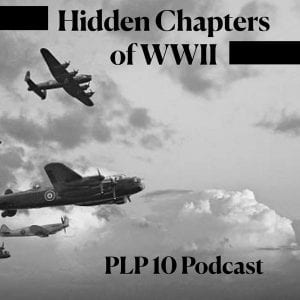Hidden chapters of history : WWII
WWII was arguably the biggest world conflict in history, over the past month or so we have learned how and why it happened, the causes and consequences, if you will. Which leads me to our driving question.
The driving question for this project was How might we use stories to better understand the causes and consequences of WWII? My answer to this question is that we can use stories to better understand the causes and consequences of WWII by listening to accounts of the war from both sides to deepen our understanding of the conflict.
I’d like to start this story of my learning with a brief history on WWII, so that the rest of this post will make sense to everyone. If you’re already very familiar with the conflict you can skip this next paragraph.
 WWII started its course all the way back in 1919 when the Treaty of Versailles was signed, leaving Germany in a bad way and dealing with major consequences for their role in WWI. Their military was shrunk and so were their borders, along with them having to pay reparations for the war, they were in an economic downfall. When the German people became desperate for a change, Adolf Hitler started his rise to fame, eventually taking control of the country with tons of support from the German people. After that Hitler put racist laws in place, anti- semitism was booming, and then he invaded Poland, a move that pushed the war further than it would’ve ever gone. From there countries got pulled in via attacks and alliances. The two sides ended up being the axis and the allied powers. Skipping past all of the battles and attacks, the war ended with Adolf Hitler committing suicide and a week later the axis powers surrendered, ending the conflict. The main part of the war started in 1939 with the invasion of Poland and ended in 1945 with the surrender of the axis powers.
WWII started its course all the way back in 1919 when the Treaty of Versailles was signed, leaving Germany in a bad way and dealing with major consequences for their role in WWI. Their military was shrunk and so were their borders, along with them having to pay reparations for the war, they were in an economic downfall. When the German people became desperate for a change, Adolf Hitler started his rise to fame, eventually taking control of the country with tons of support from the German people. After that Hitler put racist laws in place, anti- semitism was booming, and then he invaded Poland, a move that pushed the war further than it would’ve ever gone. From there countries got pulled in via attacks and alliances. The two sides ended up being the axis and the allied powers. Skipping past all of the battles and attacks, the war ended with Adolf Hitler committing suicide and a week later the axis powers surrendered, ending the conflict. The main part of the war started in 1939 with the invasion of Poland and ended in 1945 with the surrender of the axis powers.
Now that we’re all caught up with the war it’s time to see how we used what we learned about the war and put it into a new creation.
PODCASTS:
 Throughout this project we have been working towards a final goal: a class podcast. Each student made an episode in this podcast telling a WWII story with a different topic in every episode. PLP 10
Throughout this project we have been working towards a final goal: a class podcast. Each student made an episode in this podcast telling a WWII story with a different topic in every episode. PLP 10
Before we get into what topic I chose I think that I should first mention another component of the project that we did to enhance our understanding and to give our podcast episodes something to connect to. What I’m talking about is a novel study that we did.
We had a collection of books to choose from, all themed in WWII, and after we picked a book we were put into a novel study group to discuss our books. The book that I chose was called salt to the sea by Ruta Sepetys. The topic that I chose connects to one of the main characters in this book called Alfred.
The topic that I ended up doing was on Nazi soldiers in the war and their odd connection to Hitler. This whole topic stemmed from Alfred in the book, being infatuated by Hitler and having this connection to him that seems off especially as you progress through the book.
I made an episode around 6 minutes long, explaining the Nazi soldier experience, specifically honing in on Hitler youth and the impact on the kids in the program.
Our class podcast will be airing one episode at a time for 23 days! My episode is episode 2: The Delusional Soldier, stay tuned and check it out here!
The driving question from the beginning of this blog post and the beginning of this project has really been answered all throughout the learning experience. I thought that I might add in here a couple of extra pieces of evidence of my understanding that built throughout the project here.
Some notes I took during a zoom call with Corinne Miller (whose dad was in camp x in the war: Camp x
A chart on the causes and consequences of WWII: cause_consequence_secondary
Notes on Canada the story of us: Canada the story of us notes (reflection at the bottom)
My reasoning for the topic I chose: The Delusional Soldiers Mindset
So in conclusion, I think that this project was a really great way to learn about this war, and I think understanding the causes and consequences of it should help prevent something like this from happening ever again.
Thanks for reading this blog post!